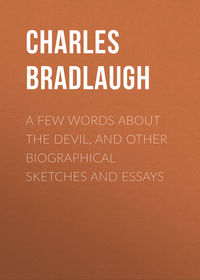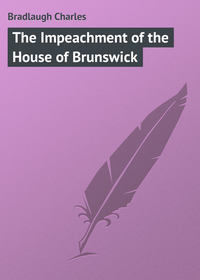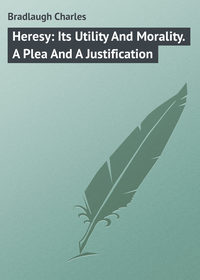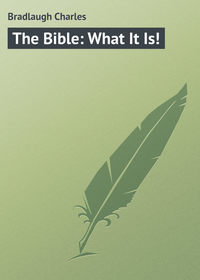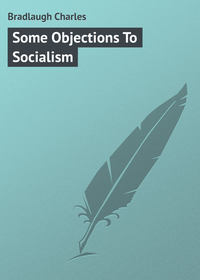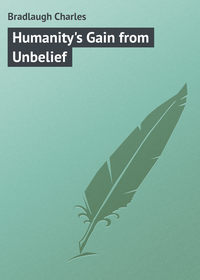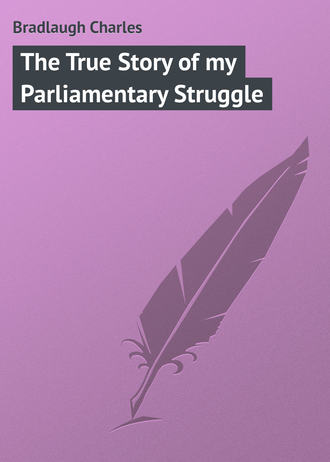
The True Story of my Parliamentary Struggle
Resolved, That any person professing the Jewish religion may henceforth in taking the oath prescribed in an Act passed in the twenty-second year of her Majesty to entitle him to sit and vote in this House, omit the words “and I make this declaration upon the true faith of a Christian.”
Whereupon Baron Lionel Nathan de Rothschild, Alderman David Salomons, and Baron Mayer Amschel de Rothschild, being Members professing the Jewish religion, having come to the table, were sworn upon the Old Testament, and took the oath, omitting the words “and I make this declaration upon the true faith of a Christian,” and subscribed the same.
PRECEDENT of a Member omitting the words in the Oath of Abjuration, “on the true faith of a Christian.”David Salomons, Esq., returned as one of the Members for the borough of Greenwich, came to the table to be sworn; and being tendered the New Testament by the Clerk, stated that he desired to be sworn on the Old Testament: Whereupon the Clerk reported the matter to Mr. Speaker, and Mr. Speaker asked him why he desired to be sworn on the Old Testament; he answered, because he considered it binding on his conscience; Mr. Speaker then desired the Clerk to swear him upon the Old Testament; the Clerk handed to him the Old Testament, and tendered him the oaths; and he took the Oaths of Allegiance and Supremacy, repeating the same after the Clerk. The Clerk then proceeded to administer the Oath of Abjuration, which Mr. Salomons read as far as the words “upon the true faith of a Christian,” which he omitted, concluding with the words “So help me, God”. And the Clerk having reported to Mr. Speaker that Mr. Salomons had omitted to repeat the words “upon the true faith of a Christian,” Mr. Speaker desired Mr. Salomons to withdraw. He thereupon retired from the table and sat down upon one of the lower benches, upon which Mr. Speaker informed him that, not having taken the Oath of Abjuration in the form prescribed by the Act of Parliament, and in the form in which the House had upon a former occasion expressed its opinion that it ought to be taken, he could not be allowed to remain in the House, but must withdraw. And he withdrew accordingly.
Motion for new writ withdrawn.
The House resumed the further proceedings.
Mr. Alderman Salomons entered the House, and took his seat within the Bar: Whereupon Mr. Speaker said that he saw that a Member had taken his seat without having taken the Oaths required by law; and that he must therefore desire that the honorable Member do withdraw.
Mr. Alderman Salomons continued in the seat within the Bar.
Ordered (after Debate), That Mr. Alderman Salomons do now withdraw.
Whereupon Mr. Speaker stated that the honorable Member for Greenwich had heard the decision of the House, and hoped that the honorable Member was prepared to obey it.
Mr. Alderman Salomons continuing to sit in his seat, Mr. Speaker directed the Serjeant-at-Arms to remove him below the Bar.
Whereupon Mr. Serjeant-at-Arms having placed his hand on Mr. Alderman Salomons, he was conducted below the Bar.
[The House refuses to hear Petitioners by Counsel at the Bar of the House in defence of their right to elect their own Representative.]
Resolved (after Debate), That David Salomons, Esq., is not entitled to vote in this House, or to sit in this House, during any debate, until he shall take the Oath of Abjuration in the form appointed by law.
PRECEDENT of a Member stating that he had a conscientious objection to take the OathBaron Mayer Amschel de Rothschild, returned for the town and port of Hythe, came to the table to be sworn, and stated that, being a person professing the Jewish religion, he entertained a conscientious objection to take the oath, which by an Act passed in the last Session has been substituted for the Oaths of Allegiance, Supremacy, and Abjuration, in the form therein required. Whereupon the Clerk reported the matter to Mr. Speaker, who desired Baron Mayer Amschel de Rothschild to withdraw; and he withdrew accordingly.
Resolved, That it appears to this House that Baron Mayer Amschel de Rothschild, a person professing the Jewish religion, being otherwise entitled to sit and vote in this House, is prevented from so sitting and voting by his conscientious objection to take the oath, which by an Act passed in the last Session of Parliament has been substituted for the Oaths of Allegiance, Supremacy, and Abjuration in the form therein required.
Resolved, That any person professing the Jewish religion may henceforth, in taking the oath prescribed in an Act of the last Session of Parliament to entitle him to sit and vote in this House, omit the words “and I make this declaration upon the true faith of a Christian.”
Baron Mayer Amschel de Rothschild, being again come to the table, desired to be sworn on the Old Testament as binding on his conscience.
Whereupon the Clerk reported the matter to Mr. Speaker, who then desired the Clerk to swear him upon the Old Testament.
Baron Mayer Amschel de Rothschild was sworn accordingly, and subscribed the oath at the table.
Appendix No. 2Paper handed in by Mr. Bradlaugh, 2nd June, 1880PRECEDENTS RELATING TO PARLIAMENTARY OATHSCASE of Attorney General Sir Francis Bacon, Commons Journals, Vol. 1, page 459, 11th April, 1614, continued from page 456, 8th April.
Eligibility of the Attorney General to sit in Parliament. By 46 Edward III., 1372, no practising barrister could be Knight of the Shire.
Page 459. – “The precedents to disable him ought to be showed on the other side.”
Page 460. – “Their Oath their own consciences to look unto, not we to examine it.”
At that date each Member had to make Oath that he was duly qualified.
1. Question whether he shall for this Parliament remain of the House or not: —Resolved, He shall.
2. Question. – Whether any Attorney General shall after this Parliament serve as a Member of this House: —Resolved, No.
CASE of John Wilkes, Esquire, Commons Journal, 38, page 977, 3rd May, 1782.
The House was moved, that the entry in the Journal of the House, of the 17th day of February, 1769, of the Resolution, “That John Wilkes, Esquire, having been in this Session of Parliament expelled this House, was and is incapable of being elected a Member to serve in this present Parliament,” might be read, and the same being read accordingly;
A motion was made, and the question being put, That the said resolution be expunged from the Journals of this House, as being subversive of the rights of the whole body of electors of this Kingdom.
The House divided.
The Yeas went forth.
Tellers for the Yeas, Sir Philip Jennings Clarke and Mr. Byng, 115.
Tellers for the Noes, Mr. John St. John and Sir William Augustus Cunynghame, 47,
So it was resolved in the affirmative.
And the same was expunged by the Clerk at the table, accordingly.
Ordered, That all Declarations, Orders, and Resolutions of this House, respecting the election of John Wilkes, Esquire, for the county of Middlesex, as a void election, the true and legal election of Henry Lawes Luttrell, Esquire, into Parliament for the said county, and the incapacity of John Wilkes, Esquire, to be elected a Member to serve in the said Parliament, be expunged from the Journals of this House as being subversive of the rights of the whole body of electors of this Kingdom.
By Cavendish’s Parliamentary Debates, Vol. I., page 73, 24th November, 1768, it appears that inter alia were used to justify the original and subsequently expunged Resolutions – first, “the copy of the record of the proceedings, on an information in the Court of King’s Bench, against John Wilkes, Esquire, for blasphemy” – page 123; “three obscene and impious libels”; “an impious libel with intent to blaspheme the Almighty God.”
CASE of Mr. John Horne Tooke, Parliamentary History, Vol. 35, page 956, 16th February, 1801.
Mr. John Horne Tooke took the Oaths and his seat for Old Sarum. He was introduced by Sir Francis Burdett and Mr. Wilson. This being done, Earl Temple rose and said, he had observed a gentleman who had just retired from the table, after having taken the Oaths, whom he conceived to be incapable of a seat in that House, in consequence of his having taken priest’s orders and been inducted into a living. He would wait the allotted time of fourteen days to see whether there was any petition presented against his return; if not he should then move that the return for Old Sarum be taken into consideration.
Page 1323, 10th March, 1801. – Earl Temple moved that Mr. Boucher, Deputy Registrar of Salisbury, be called in to prove that Mr. Horne Tooke, being a priest in orders, was not eligible to a seat in that House. After debate, in which Mr. John Horne Tooke spoke – Amendment and Division – Motion agreed to (page 1342), – Select Committee appointed (page 1343). Two reports given, pages 1343 to 1349, were made, giving all the cases of “any of the clergy” returned to Parliament.
4th May, 1801. – Earl Temple moved (pages 1349 to 1374), “That Mr. Speaker do issue his warrant to the clerk of the Crown in Great Britain, to make out a new writ for the election of a burgess to serve in this present Parliament for the Borough of Old Sarum, in the county of Wilts, in the room of the Rev. John Horne Tooke, who being at the time of his election in priest’s orders, was and is incapable of sitting in this House.” A debate took place in which Mr. John Horne Tooke spoke (pp. 1350 to 1402), division, and the motion negatived.
Jurist, Vol. 17, Page 463. – Exchequer Chamber; Error from the Court of Exchequer: Coram, Lord Campbell, Chief Justice, and Coleridge, Cresswell, Wightman, Williams, and Crompton, J.
One judgment by Lord Chief Justice Campbell for the whole Court.
Lord Campbell (page 464). – The words “so help me, God,” are words of asseveration, and of the manner of taking the oath; but the words preceding them are, it appears to me, an essential part of the oath.
Fisher’s Digest, Vol. 3, page 6179. – By a private Act, no person appointed to act as tithe valuer shall be capable of acting until he shall have taken and subscribed an oath in the words following: “I, A. B., do swear that I will faithfully, etc., execute, etc.; so help me, God.” Held, that the oath had nevertheless been properly administered according to the Statute, for the words omitted were no part of the oath, but only an indication of the manner of administering it. Lancaster and Carlisle Railway Company v. Heaton, 8 El. & Bl., 952; 4 Jur., N. S., 707; 27 L. J., Q. B., 195.
Appendix No. 3PAPER handed in by Mr. Bradlaugh, 2nd June, 1880STATEMENT on the Oath Question by Mr. Bradlaugh20, Circus Road, St. John’s Wood, London, N.W., 20th May, 1880When elected as one of the Burgesses to represent Northampton in the House of Commons, I believed that I had the legal right to make affirmation of allegiance in lieu of taking the oath, as provided by section 4 of the Parliamentary Oaths Act, 1866. While I considered that I had this legal right, it was then clearly my moral duty to make the affirmation. The oath, although to me including words of idle and meaningless character, was, and is, regarded by a large number of my fellow countrymen as an appeal to Deity to take cognizance of their swearing. It would have been an act of hypocrisy to voluntarily take this form if any other had been open to me, or to take it without protest, as though it meant in my mouth any such appeal. I, therefore, quietly and privately notified the Clerk of the House of my desire to affirm. His view of the law and practice differing from my own, and no similar case having theretofore arisen, it became necessary that I should tender myself to affirm in a more formal manner, and this I did at a season deemed convenient by those in charge of the business of the House. In tendering my affirmation, I was careful when called on by the Speaker to state my objection, to do nothing more than put in the fewest possible words my contention that the Parliamentary Oaths Act, 1866, gave the right to affirm in Parliament to every person for the time being by law permitted to make an affirmation in lieu of taking an oath, and that I was such a person, and therefore claimed to affirm. The Speaker neither refusing, nor accepting my affirmation, referred the matter to the House, which appointed a Select Committee to report whether persons entitled to affirm under the Evidence Amendment Acts, 1869 and 1870, were, under Section 4 of the Parliamentary Oaths Act, 1866, also entitled to affirm as Members of Parliament. This Committee, by the casting-vote of its Chairman, has decided that I am not entitled to affirm. Two courses are open to me, one of appeal to the House against the decision of the Committee; the other, of present compliance with the ceremony, while doing my best to prevent the further maintenance of a form which many other Members of the House think as objectionable as I do, but which habit, and the fear of exciting prejudice, has induced them to submit to. To appeal to the House against the decision of the Committee would be ungracious, and would certainly involve great delay of public business. I was present at the deliberations of the Committee, and while naturally I cannot be expected to bow submissively to the statements and arguments of my opponents, I am bound to say that they were calmly and fairly urged. I think them unreasonable; but the fact that they included a legal argument from an earnest Liberal deprives them even of a purely party character. If I appealed to the House against the Committee, I, of course, might rely on the fact that the Attorney General, the Solicitor General, Sir Henry Jackson, Q.C., Watkin Williams, Q.C., and Mr. Serjeant Simon are reported in the Times to have interpreted the law as I do; and I might add that the Right Honorable John Bright and Mr. Whitbread are in the same journal arrayed in favor of allowing me to affirm. But even then the decision of the House may endorse that of the Committee, and should it be in my favor it could only, judging from what has already taken place, be after a bitter party debate, in which the Government specially and the Liberals generally would be sought to be burdened with my anti-theological views, and with promoting my return to Parliament. As a matter of fact, the Liberals of England have never in any way promoted my return to Parliament. The much-attacked action of Mr. Adam had relation only to the second seat, and in no way related to the one for which I was fighting. In 1868, the only action of Mr. Gladstone and of Mr. Bright was to write letters in favor of my competitors; and since 1868 I do not believe that either of these gentlemen has directly or indirectly interfered in any way in connection with my Parliamentary candidature. The majority of the electors of Northampton had determined to return me before the recent union in that borough, and while pleased to aid their fellow Liberals in winning the two seats, my constituents would have at any rate returned me had no union taken place. My duty to my constituents is to fulfil the mandate they have given me, and if to do this I have to submit to a form less solemn to me than the affirmation I would have reverently made, so much the worse for those who force me to repeat words which I have scores of times declared are to me sounds conveying no clear and definite meaning. I am sorry for the earnest believers who see words sacred to them used as a meaningless addendum to a promise, but I cannot permit their less sincere co-religionists to use an idle form in order to prevent me from doing my duty to those who have chosen me to speak for them in Parliament. I shall, taking the oath, regard myself as bound, not by the letter of its words, but by the spirit which the affirmation would have conveyed had I been permitted to use it. So soon as I am able, I shall take such steps as may be consistent with Parliamentary business to put an end to the present doubtful and unfortunate state of the law and practice on oaths and affirmations. Only four cases have arisen of refusal to take the oath except, of course, those cases purely political in their character; two of those cases are those of the Quakers John Archdale and Joseph Pease. The religion of these men forbade them to swear at all, and they nobly refused. The sect to which they belonged was outlawed, insulted and imprisoned; they were firm, and one of that sect sat on the very committee, a member of her Majesty’s Privy Council, and a member of the actual Cabinet. I thank him gratefully that, valuing right so highly, he cast his vote so nobly for one for whom I am afraid he has but scant sympathy. No such religious scruple prevents me from taking the oath as prevented John Archdale and Joseph Pease. In the case of Baron Rothschild and Alderman Salomons the words “upon the true faith of a Christian” were the obstacle. To-day the oath contains no such words. The Committee report that I may not affirm, and protesting against a decision which seems to me alike against the letter of the law and the spirit of modern legislation, I comply with the forms of the House.
Charles Bradlaugh.MR. BRADLAUGH’S SPEECHESMr. Bradlaugh’s First Speech at the Bar of the House of Commons, delivered June 23rd, 1880Sir, – I have to ask the indulgence of every member of this House while, in a position unexampled in the history of this House, I try to give one or two reasons why the resolution which you have read to me should not be enforced. If it were not unbecoming I should appeal to the traditions of the House against the House itself, and I should point out that in none of its records, so far as my poor reading goes, is there any case in which this House has judged one of its members in his absence, and taken away from that member the constitutional right he has (hear, hear). There have been members against whom absolute legal disqualification has been urged. No such legal disqualification is ventured to be urged by any member of this House against myself. But even those members have been heard in their places; those members have been listened to before the decision was taken against them; and I ask that this House to myself shall not be less just than it has always been to every one of its members (hear, hear). Do you tell me I am unfit to sit amongst you? (hear, hear, and Order, order.) The more reason, then, that this House should show the generosity which judges show to a criminal, and allow every word he has to say to be heard. But I stand here, Sir, as no criminal. I stand here as the chosen of a constituency of this country, with my duty to that constituency to do. I stand here, Sir – if it will not be considered impertinent to put it so – with the most profound respect for this House, of which I yet hope and mean to form a part, and on whose traditions I should not wish to cast one shadow of reproach. I stand here returned duly; no petition against my return; no impeachment of that return. I stand here returned duly, ready to fulfil every form that this House requires, ready to fulfil every form that the law permits this House to require, ready to do every duty that the law makes incumbent upon me. I will not in this presence argue whether this House has or has not the right to set its decision against the law, because I should imagine that even the rashest of those who spoke against me would hardly be prepared to put in the mouth of one whom they consider too advanced in politics an arguments so dangerous as that might become. I speak within the limits of the law, asking for no favor from this House for myself or for my constituents, but asking the merest justice which has always been accorded to a member of the House (hear, hear, and Order.) I have to ask indulgence lest the memory of some hard words which have been spoken in my absence should seem to give to what I say a tone of defiance, which it is far from my wish should be there at all; and I am the more eased because although there were words spoken which I had always been taught English gentlemen never said in the absence of an antagonist without notice to him, yet there were also generous and brave words said for one who is at present, I am afraid, a source of trouble and discomfort and hindrance to business. I measure the generous words against the others, and I will only make one appeal through you, Sir, which is, that if the reports be correct that the introduction of other names came with mine in the heat of passion and the warmth of debate, the gentleman who used those words, if such there were, will remember that he was wanting in chivalry, because, while I can answer for myself, and am able to answer for myself, nothing justified the introduction of any other name beside my own to make a prejudice against me (cheers and cries of Question and Order.) I fear lest the strength of this House, judicially exercised as I understand it to be – with infrequency of judicial exercise – that the strength of this House makes it forget our relative positions. At present I am pleading at its bar for justice. By right it is there I should plead. [The hon. member pointed to the seats.] It is that right I claim in the name of those who sent me here. No legal disqualification before my election, or it might have been made the ground of petition. No legal disqualification since my election – not even pretended. It is said: “You might have taken the oath as other members did.” I could not help when I read that, Sir, trying to put myself in the place of each member who said it. I imagined a member of some form of faith who found in the oath words which seemed to him to clash with his faith, but still words which he thought he might utter, but which he would prefer not to utter if there were any other form which the law provided him, and I asked myself whether each of those members would not then have taken the form which was most consonant with his honor and his conscience. If I have not misread, some hon. members seem to think that I have neither honor nor conscience. Is there not some proof to the contrary in the fact that I did not go through the form, believing that there was another right open to me? (hear, hear, and Order.) Is that not some proof that I have honor and conscience? Of the gentlemen who are now about to measure themselves against the rights of the constituencies of England I ask what justification had they for that measurement? They have said that I thrust my opinions on the House. I hold here, Sir, the evidence of Sir Thomas Erskine May, and I can find no word of any opinion of mine thrust upon the House at all. I have read – it may be that the reports misrepresent – that the cry of “Atheist” has been raised from that side. [The hon. member pointed to the Opposition side.] No word of all mine before the committee put in any terms those theological or anti-theological opinions in evidence before the House. I am no more ashamed of my own opinions, which I did not choose, opinions into which I have grown, than any member of this House is ashamed of his; and much as I value the right to sit here, and much as I believe that the justice of this House will accord it to me before the struggle is finished, I would rather relinquish it for ever than it should be thought that by any shadow of hypocrisy I had tried to gain a feigned entrance here by pretending to be what I am not (cheers, and cries of Order.) On the report of the committee as it stands, on the evidence before the House, what is the objection to either my affirming or taking the oath? It is said I have no legal right to affirm. I will suppose that to be so. It is the first time that the House has made itself a court of law from which there may be no appeal, and deprived a citizen of his constitutional right of appeal to a court of law to make out what the statute means in dealing with him. There is no case in which this House has overridden everything, and put one of its members where he had no chance of battling for his right at all. Take the oath. It is possible that some of the lawyers, who have disagreed among themselves even upon that (the Opposition) side of the House, may be right, and that I may be wrong in the construction I have put upon the oath, but no such objection can come. There is no precedent – there is, I submit respectfully, no right – in this House to stand between me and the oath which the law provides for me to take, which the statute, under penalty even upon members of this House themselves if they put me out from my just return, gives me the right to take. What kind of a conflict is provoked here if this resolution be enforced? Not a grave conflict in a court of law, where the judges exclude passion, where they only deal with facts and evidence. I do not mean that these gentlemen do not deal with facts; but, if I am any judge of my own life’s story, there have been many things which I can hardly reckon in the category of facts put against myself. I don’t mean that they are not right, for hon. members may know more of myself than I do myself; but, judging myself as I know myself, some of the members who have attacked me so glibly during the last few days must have been extraordinarily misinformed, or must have exceedingly misapprehended the matters they alleged. It has been said that I have paraded and flaunted some obnoxious opinions. I appeal to your justice, sir, and to that of the members of this House, to say whether my manner has not been as respectful as that of man could be – whether in each case I have not withdrawn when you told me. If I now come here with even the appearance of self-assertion, it is because I would not be a recreant and a coward to the constituency that sent me to represent them; and I mean to be as members have been in the best history of this assembly. I ask the House, in dealing with my rights, to remember how they are acting. It is perfectly true that by a majority they may decide against me now. What are you to do then? Are you going to declare the seat vacant? First, I tell you that you have not the right. The moment I am there – [the hon. member pointed inside the House] – I admit the right of the House, of its own good will and pleasure, to expel me. As yet I am not under your jurisdiction. As yet I am under the protection of the law. A return sent me to this House, and I ask you, sir, as the guardian of the liberties of this House, to give effect to that return. The law says you should, and that this House should. And naturally so; because, if it were not so, any time a majority of members might exclude anyone they pleased. What has been alleged against me? Politics? Are views on politics urged as a reason why a member should not sit here? Pamphlets have been read – I won’t say with accuracy, because I will not libel any of the hon. members who read them; but, surely, if they are grounds for disqualification they are grounds for indictment to be proved against me in a proper fashion. There is no case in all the records of this House in which you have ransacked what a man has written and said in his past life and then challenged him with it here. My theology? It would be impertinent in me, after the utterances of men so widely disagreeing from me that have been made on the side of religious liberty during the past two nights – it would be impertinent in me to add one word save this. It is said that you may deal with me because I am isolated. I could not help hearing the ring of that word in the lobby as I sat outside last night. But is that a reason, that, because I stand alone the House are to do against me what they would not do if I had 100,000 men at my back? (cries of Oh). That is a bad argument which provokes a reply inconsistent with the dignity of this House and which I should be sorry to give. I have not yet used – I hope no passion may tempt me to be using – any words that would seem to savor of even a desire to enter into conflict with this House. I have always taught, preached, and believed the supremacy of Parliament, and it is not because for a moment the judgment of one Chamber of Parliament should be hostile to me that I am going to deny the ideas I have always held; but I submit that one Chamber of Parliament – even its grandest Chamber, as I have always held this to be – had no right to override the law. The law gives me the right to sign that roll, to take and subscribe the oath, and to take my seat there [pointing to the benches]. I admit that the moment I am in the House, without any reason but your own good will, you can send me away. That is your right. You have full control over your members, but you cannot send me away until I have been heard in my place, not a suppliant as I am now, but with the rightful audience that each member has always had. There is one phase of my appeal which I am loth indeed to make. I presume you will declare the seat vacant. What do you send me back to Northampton to say? I said before, and I trust I may say again, that this assembly was one in which any man might well be proud to sit – prouder I that I have not some of your traditions and am not of your families, but am of the people, the people that sent me here to speak for them. Do you mean that I am to go back to Northampton as to a court, to appeal against you? that I am to ask the constituency to array themselves against this House? I hope not. If it is to be, it must be. If this House arrays itself against an isolated man – its huge power against one citizen – if it must be, then the battle must be too. But it is not with the constituency of Northampton alone – hon. members need not mistake – that you will come into conflict if this appeal is to go forward, if the House of Commons is to override the statute law to get rid of even the vilest of members. Had you alleged against me even more than against one man whose name was mentioned in this House last night, I should still have held that the House cannot supersede the rights of the people. But not as much is alleged against me as was alleged against that man, in whose case the House itself said that its conduct had been subversive of the rights of the people. I beg you, for your own sakes, don’t put yourselves in that position. I have no desire to wrestle with you for justice. I admit that I have used hard words in my short life, giving men the right in return to say hard things of me; but is it not better that I should have the right to say them to your faces? If they are within the law, let the law deal with me fairly and properly; but if they are without the law, not unfairly, as I submit you are doing now. You have the power to send me back, but in appealing to Northampton I must appeal to a tribunal higher than yours – not to courts of law, for I hope the days of conflict between the assembly which makes the law and the tribunals which administer it are passed. It must be a bad day for England and for Great Britain, if we are to be brought again to the time when the judges and those who make the law for the judges are in rash strife as to what they mean. But there is a court to which I shall appeal – the court of public opinion, which will have to express itself. You say it is against me. Possibly; but if it be so, is it against me rightly or wrongly? I am ready to admit, if you please, for the sake of argument, that every opinion I hold is wrong and deserves punishment. Let the law punish it. If you say the law cannot, then you admit that you have no right, and I appeal to public opinion against the iniquity of a decision which overrides the law and denies me justice. I beg your pardon, Sir, and that of the House too, if in this warmth there seems to lack respect for its dignity; and as I shall have, if your decision be against me, to come to that table when your decision is given, I beg you, before the step is taken in which we may both lose our dignity – mine is not much, but yours is that of the Commons of England – I beg you, before the gauntlet is fatally thrown – I beg you, not in any sort of menace, not in any sort of boast, but as one man against six hundred, to give me that justice which on the other side of this hall the judges would give me were I pleading there before them (loud cheers and cries of Order, amid which Mr. Bradlaugh again bowed and retired).


